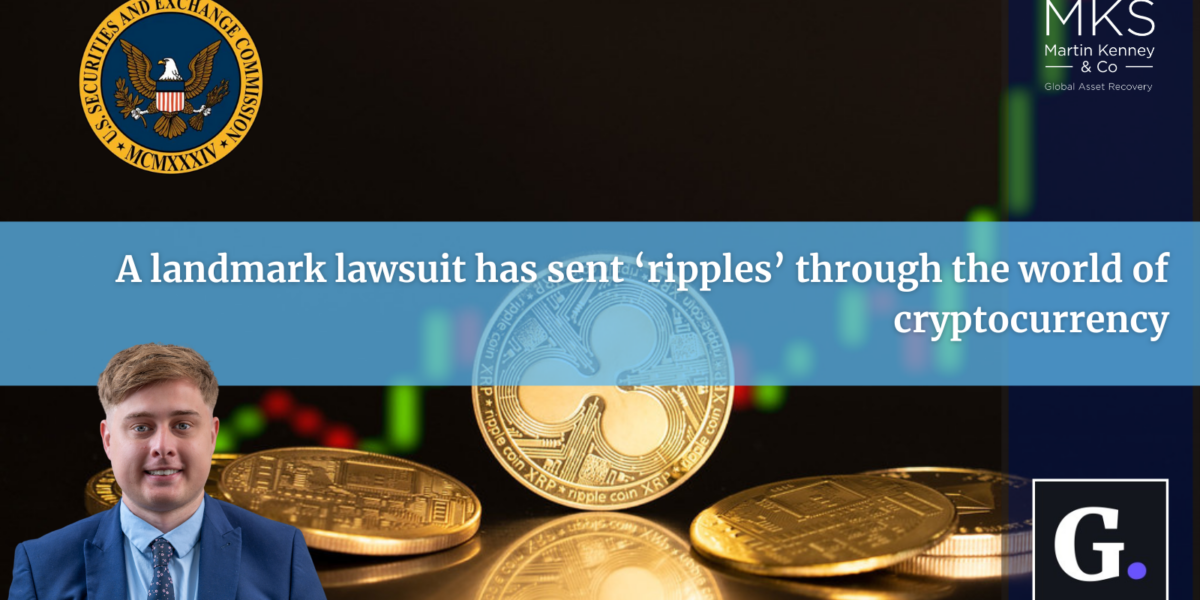The implication of SEC vs Ripple Labs ruling
One of the most significant aspects of the recent ruling between cryptocurrency firm Ripple vs. the Securities and Exchange Commission in the USA is the clarification on the status of digital assets, says Harley Thomas, our forensic accountant and senior investigator.
“The recent ruling in the case has sent ripples through the cryptocurrency community, marking a significant turning point in the regulatory landscape of digital assets.”
Clarification on the status of digital assets
The cryptocurrency world has been closely following a legal battle between Ripple Labs, the company behind digital asset XRP, and the SEC.
This lawsuit, which began in December 2020, has become a defining case for the entire cryptocurrency industry. Its outcome could set a significant precedent for how digital assets are regulated in the United States.
The SEC filed a lawsuit against Ripple Labs, plus its CEO Brad Garlinghouse and co-founder Chris Larsen, alleging that they had conducted an unregistered securities offering worth over $1.3 billion through the sale of XRP (with the SEC ultimately seeking $2 billion in fines, penalties and pre-judgement interest from Ripple Labs). The central issue in this case is whether XRP should be classified as a “security”, which would subject it to strict regulatory oversight under US securities laws.
The recent ruling in the case has sent ripples through the cryptocurrency community, marking a significant turning point in the regulatory landscape of digital assets. The US District Court for the Southern District of New York ruled in favour of Ripple Labs in a landmark decision, stating that Ripple’s XRP token is not necessarily a security when sold on public exchanges.
This ruling is, in my opinion, a major victory not just for Ripple, but for the broader cryptocurrency industry, which has long struggled with regulatory uncertainty. Ripple was fined $125m, just a fraction of the amounts sought by the SEC, in addition to an injunction barring it from future violations of Section 5 of the Securities Act.

